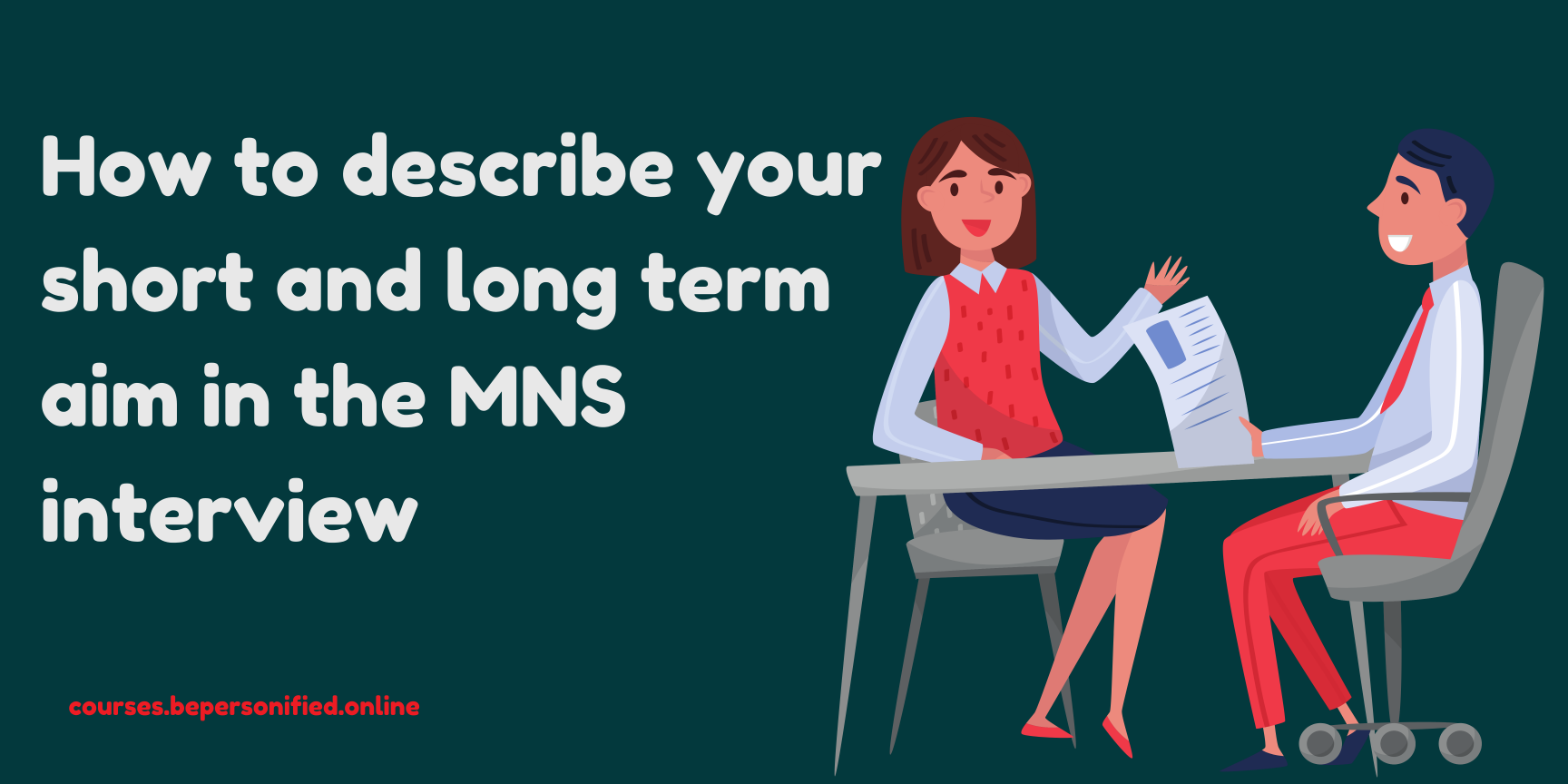Some questions for work interviews are so popular that they have become almost universal. One example: "What are your short- and long-term goals?" This question enables the interviewer to determine your ability to differentiate between the two and to analyze the course of your life and career.
Similar questions are being asked in the MNS exam to verify the abilities and capabilities of the MNS aspirants.
So how do you efficiently answer these questions?
Here we are providing you the ways to enhance your interview for the MNS exam.
BE SURE TO LINK YOUR ANSWERS
Ideally, the short-term objectives and long-term objectives should be linked to each other. This indicates that you have a strategy in place and you are committed to implementing it. This implies that your short-term objectives can somehow contribute to your long-term objectives.
Examples of short-term career goals might include:
- Breaking into a new market
- Learning a fresh range of abilities
- Gaining leadership and team-building skills
- Being an expert in your training and knowledge
From there, to form your long-term priorities, build on your responses. For example, if your short-term goal is to get into MNS, your long-term goal could be to clear the MNS exam with great marks that will help you in attaining the position in Military nursing services. Concentrate on leading yourself to the future you imagine. Keep your responses truthful, but let you be directed by the company and place.
SET YOUR GOALS
In the short term, decide what you would like to do and decide how you will achieve this. The interviewer would be delighted to hear how you have defined a path you want to take your career in the short term, whether it is sharpening your skills in a particular part of the market or creating the first collection of customers. Then figure out where you would like to go in the long term in your career and how you can use your talents to get there. Matching your short and
long-term targets is also smart. The recruiter can see how much you can make of a motivated and proactive team by linking your goals together.
ALIGNING YOUR ANSWER WITH YOUR EXPERTISE AND SKILLS
Avoid responding with ambitions such as "attaining the highest position in military nursing services" or "win the Padma Shri" to the long-term target subject. Keep your answers in line with your skills, job background, and abilities. You don't want to sound irrational or egotistical. Think about the next steps in your career that are rational. Perhaps you're interested in being a team leader or a middle woman if you were an entry-level candidate two years ago. Instead, maybe
your short-term and long-term priorities apply to skill-building or portfolio development.
IMPLEMENT THE VISION STATEMENT OF MNS IN YOUR ANSWER
Visit the website of military nursing services just after completing your MNS exam and before your interview, visit the Military Nursing Service website to have a look peek at the MNS exam mission statement of MNS. Try to incorporate that information in your answer. In your response, try to integrate the details.
Examples of short-term goals for your interview might include:
- I would like to be instrumental in helping to accomplish big goals for my fellow mates.
- I'm interested in contributing my strength and devotion to healing soldiers.
- My aim is to enter a team that does not recognize the position of second-best.
In this way, you will demonstrate that you have done your homework and that your priorities are consistent with the company you want to obtain employment from.
DON’T BE A FAIL-UP ANYMORE
Be mindful that the interviewer will see if you are committed to the job role while answering this question. Play this up too much, though, and you can show the interviewer that it's just a facade. Instead of ensuring that you spend the longest time with the company, clarify how the job meets your short-term goals. Interviewers don't anticipate you to stick around forever, especially if you're just starting your career-they know that priorities change and new experiences are important as well as you do.
GET READY FOR THIS QUESTION FOR THE INTERVIEW
You need to make sure you plan properly to have a sound response to the question. You're likely to get a pretty good idea of your short and long-term career goals, which is fantastic! You need, though, to make sure you know how to describe why your goals are and how you foresee achieving them yourself. Make sure you type down some mock responses using the STAR method before the MNS exam interview and try to decipher them. Note that there is more than one way to ask, "What are your short-term and long-term objectives?" just in case you need to adapt, it's best to have a couple of models.
DON’T BE AFRAID TO EXPLAIN CONFUSION
Know that if you're not 100 percent sure about your long-term career ambitions, it's okay. Because of your experiences and needs in and outside of the workplace, objectives change all the time. Therefore, for now, as long as you have a general purpose that coincides with your short-term objectives, that is enough.
Just note that it should balance your short- and long-term objectives. For instance, it does not make sense to apply for a job as a chef because you want to be a chef right now, but you want to work in sales later in life, which would trigger alarm bells with the employer.
These will help you work out the definition of short-term and long-term objectives. For the MNS job description, you have to keep your response appropriate. You can interlink your short-term and long-term objectives to explore the utilization. The doors of the MNS institution will open if you are able to envision your plans with confidence. After clarifying the MNS exam, be crystal clear about your plans. Remember to add a little modesty. All the best!

